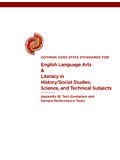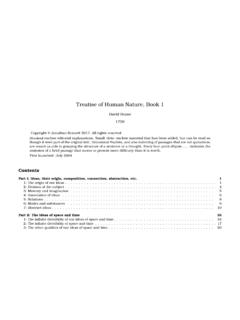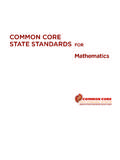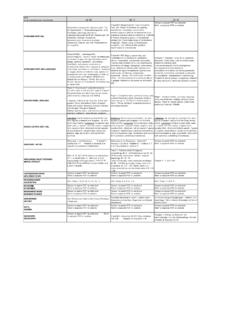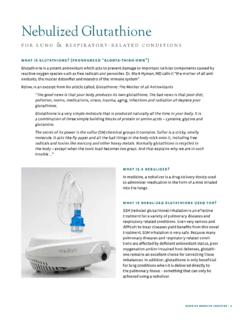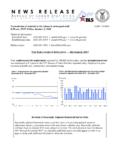Transcription of AP English Literature and Composition Syllabus: …
1 AP English Literature and Composition syllabus : Course Overview: The AP English Literature and Composition course is designed with the goal of enhancing students' abilities to explore, comprehend, interpret, evaluate, and appreciate complex literary texts. Upon completion of this course a student should be proficient in discussing Literature of varied themes, historical contexts, and genres whether it be in an on-demand, timed writing prompt, an in-depth, scrutinized, and revised essay, or in class discussion. Students entering this course must have the initial expectation that they will read, contemplate, and write about Literature extensively. We will write an essay every couple weeks (in analytical, argumentative, and expositional forms) and will read every day (novels, creative nonfiction, short stories, and poems).
2 They must be willing to challenge and justify their understandings, attempt to see other perspectives, and discuss in a mature and lively manner. As this course also has the goal of preparing all students to pass the AP English Literature and Composition exam, it operates in accordance with the information contained in the latest AP English Literature course description (which I ensure by reviewing it at least once per academic year). The course features practice for both free response and multiple choice portions of the test. We attempt to scaffold students' on demand close reading and writing abilities by repeated practice, group scoring, feedback, and reflection on a variety of sample AP-styled questions and prompts.
3 Course Texts: We read a variety of texts (short and ling, fiction and creative nonfiction, poetry, etc) that focus on many different universal themes, social commentaries, etc. These texts include time periods from the 1600' s forward and represent many cultures (including British and American). The course uses the ninth edition of The Norton Introduction to Literature (Edited by Booth, Hunter, and Mays) as the primary Anthology. This text contains stories, poems, and novellas from many different cultures (including British and American). as well as a wide historical and stylistic variety. This Textbook provides commentaries on many of the stories, example analysis, and sample student essays as well as instruction on writing about Literature .
4 Though the textbook contains a multitude of poetry I also draw from a personal collection of poems by favorite authors, such as Symborska, Dunn, Eliot, Auden, Pound, Creeley, Corso, Keats, and Harrison. All students read the following novels (or plays) in addition to the shorter work in the Norton: Heart of Darkness, Frankenstein, Jane Eyre, The Turn of the Screw, The Great Gatsby, One Flew Over the Cuckoo' s Nest, Hamlet, and Things Fall Apart Students also draw from an extensive class library for independent or open-choice reading highlighted texts include: The Awakening, One Hundred Years of Solitude, The Scarlet Letter, Cat' s Cradle, The Catcher in the Rye, and Brave New World. Writing Expectations Students are expected to write many essays through the course of the year.
5 All of the outside of class long term essays are expected to be revised and polished works. To this end some class time will be devoted to student- teacher and student-student conferences. Feedback also comes from written response to rough and final drafts turned into the instructor, evaluated, annotated, and returned to students. As our school devotes one period each day as a L earning Lab, during which I am available for questions, students in need of help are expected to see me as necessary. For all essay assignments students will receive a rubric. This rubric will express the central guidelines/goals of the activity. Students should use it as a guide to focus the majority of their energy.
6 All rubrics will include elements about the strength of writing, and for this reason students should constantly seek to identify and improve personal structural and grammatical weaknesses. Essays that students receive back after grading will have notations made on them to help guide the students toward fixing problem areas and all students are encouraged to revise and resubmit essays. As an absolute minimum, students are expected to review these comments and use them as an additional strategy to improve language, structuring, and rhetorical skills. As the tasks become more complex and the expectations more demanding as the year progresses students who fail to self reflect during the course suffer academically.
7 Ongoing activities: The following items are done as mini-lessons in the course of our major units. As we have a block schedule (80 min. periods) at the school, class periods warrant the time to address these things during a portion of the class period. These things never receive single large unit activities, but are seen instead as being support for the skills of vocabulary enhancement, close reading and analysis, and on-demand writing and so are done as supplementary activities. Please note that the following activities take place throughout the entirety of the year and are not further discussed in this syllabus . As often as possible the multiple choice or free response questions are aligned with the subjects, forms, or thematic contents identified in the long term projects.
8 The journals and vocabulary are always aligned with the units. Journal Activities: Students keep a journal as part of their notebook. In it they are asked to reflect upon difficulties and strengths in their own education, respond to free writing activities, and generally explore ideas that we are entertaining as a class. Some specific reference is made to journal prompts to provide a taste of the style and range of activities. All lessons contain these sorts of journal projects even when descriptions are not specifically provided in this curriculum. Multiple Choice Questions- every two weeks we read and answer a sample multiple choice section. We discuss what types of information you need to focus on in the close reading of the prompt to fully understand the test and its implications as well as strategies to use while answering the questions.
9 Vocabulary- As vocabulary is essential for the ability to understand and discuss Literature , we work with literary terminology as well as vocabulary gathered during reading. During each lesson/unit, the class identifies unknown vocabulary being used in the textbook, in sample AP Test materials, and in Novels. We define, study, review, and test on this vocabulary in 10 minute class starters as well as seeing it used in context. Though this is not described unit by unit (because it would be redundant to do so) students use this vocabulary in their writing (one must use literary terminology to discuss Literature ) and expand vocabulary knowledge through in context recognition. Free response prompts- Every two weeks we will view a sample AP free response prompt.
10 We either discuss the prompt as a class to identify what it is requesting and possible directions to go in the response, or else the class answers it as a practice timed task. Summer Assignment: Before students enter the course they must complete a summer assignment that requires them to read a self-selected (but teacher-approved) literary work and discuss some of the basic aspects. Open novel choice- approved before they leave school recommended texts include Marquez, Heller, Allende, Dostoyevsky, Tolstoy, Twain, etc We have a classroom library that contains many choice texts, though the students may purchase their own if they wish. Journal activity- Students must develop a reading journal where they discuss their understandings and reactions to the text.
